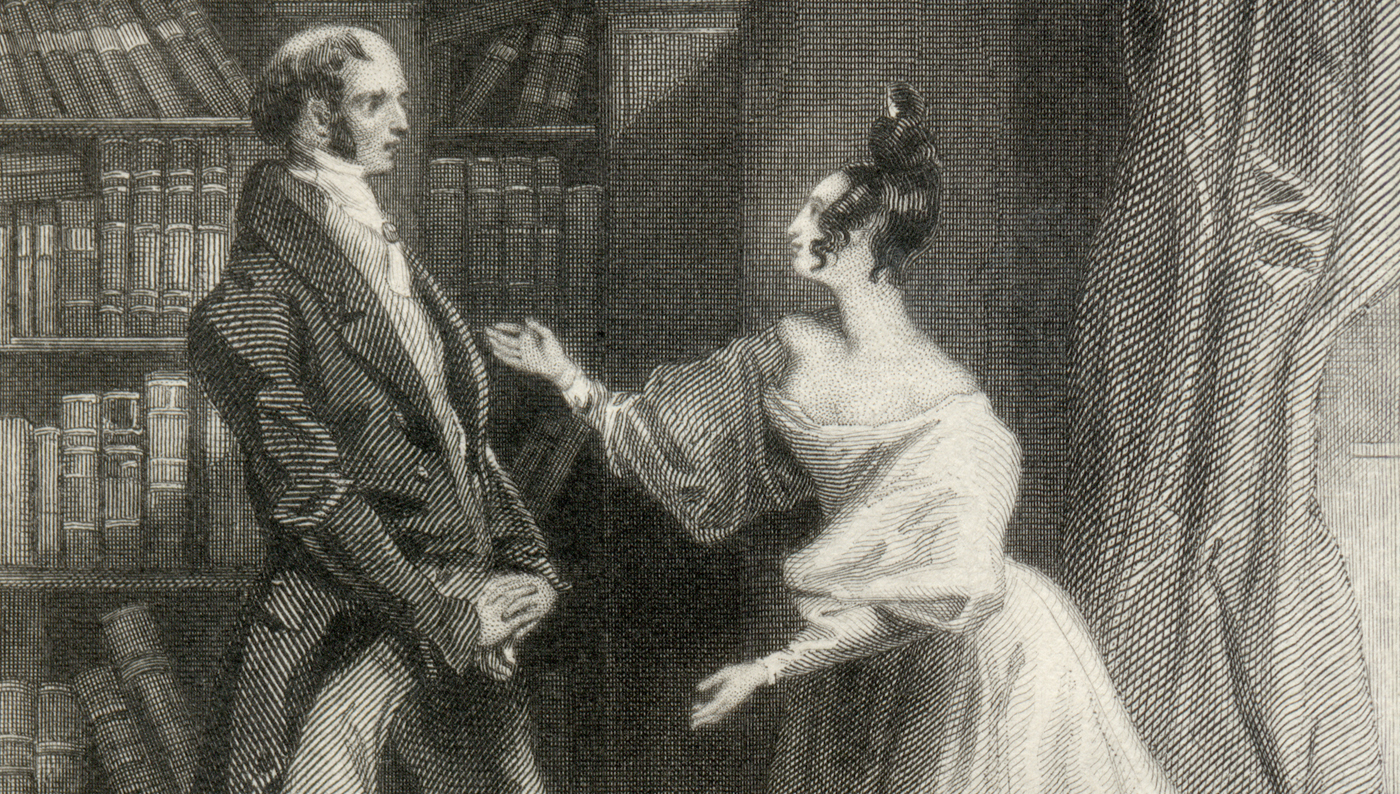
Engraving of Elizabeth Bennet and her father, from an 1833 edition of Pride and Prejudice.
• Presenting Jane Austen’s The Bachelor: “What’s clear reading Austen today, or watching one of the countless adaptations of her work, is how much the women in her novels have in common with so many of the women on reality television. Her female characters are defined by two primary qualities: their privilege and their powerlessness. Her writing focuses almost entirely on women searching for stability and status, deploying the very limited means available to them. Deprived of intellectual gratification or professional empowerment, they scheme, manipulate, and get bogged down in petty rivalries with each other.” (The Atlantic)
• Thomas Hardy’s letters reveal the inner life of a man who, in 1904, judged “a contest in search of Britain’s most photogenic babies.” (Paris Review Daily)
• Time travel and privilege: “Nothing flaunts white privilege quite like a time-travel story. But in those narratives, the subject of historical racism, if it’s handled at all, is often dealt with in a haphazard or obligatory way alongside other lesser concerns. Our protagonist usually has some specified mission of more pressing personal import, but nevertheless, the movies remind us, in self-defeating winks and nods, about how much progress we have made on the race stuff. Remember? We used to use paper maps to get around, but now we have GPS. Remember? We thought smoking was okay, but now we know it causes cancer.” (The Awl)
• FBI agents have cracked the case of a missing Charles Darwin letter. (The Guardian)
• “If a baby is gluttonous, it can be cured by being placed on a bread-shelf for a few minutes,” and other early American superstitions. (Slate)
• Getting to the bottom of PG-13-level slang: “While expletive infixation may be used for emphasis in casual speech, its usage is still fairly marked. It hasn’t made as insidious an infiltration into mainstream language as one other surprisingly popular curse word: ass. If you’re unconvinced about the grammatical versatility of ‘ass,’ worry not, the linguists are on it!” (JSTOR Daily)
• Meanwhile, the Québecois are inventing their own curse words with a little help from the Catholic church. (Atlas Obscura)